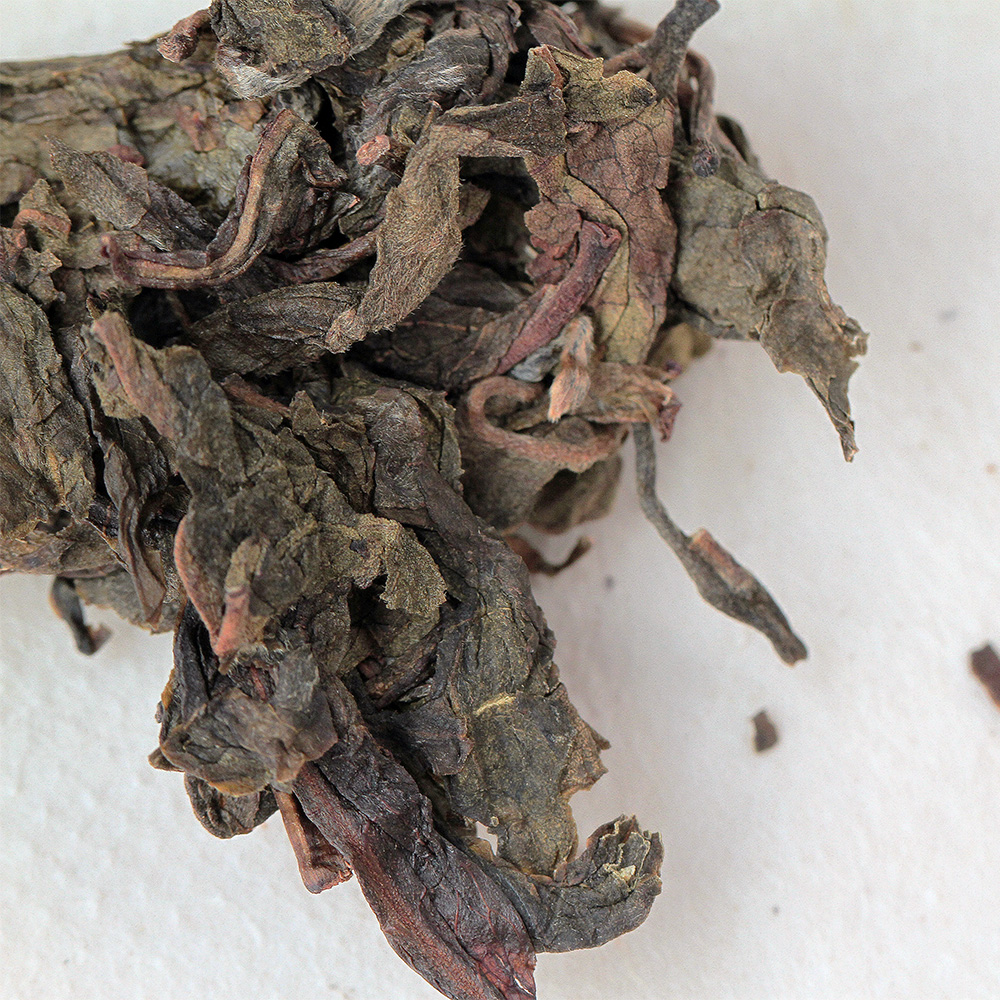Xi Banshan Huangpian 2014



Xi Banshan Huangpian 2014
handmade item
materials: big-leaved arbor tea leaves from the town of Mengku
shape: brick
dimension: 14 x 9 x 2 cm / 5.51 x 3.54 x 0.79 in
weight: 200 g / 7.04 oz
Handmade with tea leaves picked from Xi Banshan in 2014, this well-balanced sheng pu-eh is represented by its initial vegetal taste, which soon transfers to a comforting honey flavour. It is a sheng pu-er that can be easily enjoyed, offering daily relaxation and comfort.
Mengku town, nestled in the most northern region of Shuangjiang County, under Lincang City in southwestern Yunnan, is a place of unique geographical features. Its total area of 475.3 sq km is characterized by two mountains, one river, and one flatland. The Nanmeng River flows gracefully between the Ma’an and Bangma mountains. Ma’an Mountain, also known as Dong Banshan, sits on the river’s east bank, while Bangma Mountain, or Xi Banshan, is on the west bank.
The name huangpian means “yellow leaves” in Chinese. The picking standard of pu-er tea is 1 bud, with up to 3 leaves; on rare occasions, it goes up to 4. The smaller and suppler tea buds are easily rolled into cord-like strands during the initial processing, whereas the bigger and broader leaves aren’t. As a result, the shape of the 3rd and 4th leaves is not ideal. For the best aesthetics of the final product to the consumers, tea farmers usually filter out these bigger leaves so that the remaining ones are neat and consistent when pressed into bing or disks The tea farmers often keep these bigger leaves, which are less common on the market. Unknown to the general public, these larger and plumpish leaves are more flavourful and sweeter as they have been grown on trees longer. Laohuangpian undergoes the same production method as sheng pu-er and retains the same quality. This tea is worth trying if you wonder what the local ethnic groups and tea farmers from the Lincang region are enjoying on their own.
Puzzled on any unfamiliar terms? Look them up:

